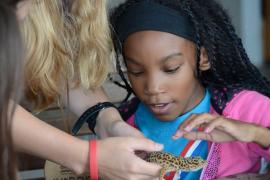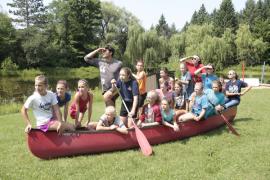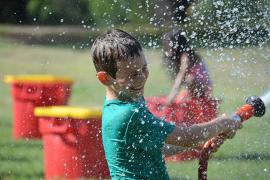Happy fall, everyone!
I am here to report about the latest development in the ACA’s 5 Year Impact study — more specifically to tell you about the recent Research Advisory Committee (ReAC) meeting hosted by the University of Utah research team led by Dr. Jim Sibthorp. The Impact Study is a large research project intended to continue unpacking the value of camp for youth, especially the things that kids learn at camp that transfer to the rest of their lives. The University of Utah team is well into data collection for the third phase of the study! I hope that reading this post will help you gain a better understanding of the steps ACA is taking to ensure that the research being conducted is meaningful and scientifically sound!
To get started, let’s quickly review what bias means. At the most basic level, biases are a preference for one particular thing over another. Some people prefer Pepsi, while others prefer Coca-Cola. Our biases are the lens through which we view the world. When it comes to research, however, good scientifically sound research strives to acknowledge biases and use systematic approaches to avoid biases’ potential impact on the ways we conduct research and interpret our results.
Let’s face it – ACA and those of us in the field believe in the power of camp or we wouldn’t be doing the work that we do. Our affinity for camp is a bias we may bring to our evaluations of programming or the ways we gather data to support camp. ReAc is one way that ACA is striving to address the potential biases in doing camp research. This committee is comprised of a volunteer group of professionals and academics from different backgrounds who all bring unique and insightful perspectives to the conversation. Their role throughout the Impact Study has been to advise ACA in the selection of the external research team (University of Utah), provide guidance to the research team, and help ACA translate the Impact Study findings to be most useful for the broader camp community. The committee is in contact with the University of Utah research team throughout the year and meets in person once a year.
Update from the Fall 2018 Meeting
There were two overarching purposes of this meeting: 1) review the findings and methods from University of Utah team; 2) determine what and how we can say about these findings. Here are two key takeaways from this meeting:
- The University of Utah research team spent a considerable amount of time reviewing the findings of the first two phases of the project, which were focused on exploring the distinct and transferable outcomes of camp experiences. In Phase 2, the research team surveyed two groups of camp alumni: one group that is currently working at an ACA-accredited camp and a second from the general public. The criteria for both groups was attending camp for at least three weeks as a child. The results from both samples provided a map of the lasting impacts of camp, how critical camp was to those outcomes, and how important those outcomes are in emerging adults’ lives. Stay tuned, we’ll share these results in the next Research 360 blog post.
- ReAC feels strongly that the findings from Phase 2 and beyond are shared with camps in timely and relevant ways. To do this, the research team must first present and publish what we’re learning in scientific conferences and journals—this helps ensure that what we say is robust and reliable. The committee also reinforced the importance of presenting these findings at the ACA National Conference, ACA regional conferences, and in print outlets, like Camping Magazine and the Research 360 blog. Ultimately, we will translate the findings into tools camp professionals can use to train staff, design programs, and advocate to broad audiences.
Well that is all for now. I hope that reading this post helped keep you more in the loop of the amazing work that is being done through the Impact Study. Stay tuned for more information about the findings of the 5-Year Youth Impact Study by checking back in to Research 360, Camping Magazine, and attending the upcoming 2019 ACA National Conference.
Keep up the life-changing work!
Photo courtesy of Camp John Marc in Dallas, Texas.
Rob Warner, a research assistant for ACA, is a doctoral student at the University of Utah and has worked in the youth development field for a variety of organizations as a counselor, field instructor, and mentor.
The views and opinions expressed by contributors are their own and do not necessarily reflect the views of the American Camp Association or ACA employees.




